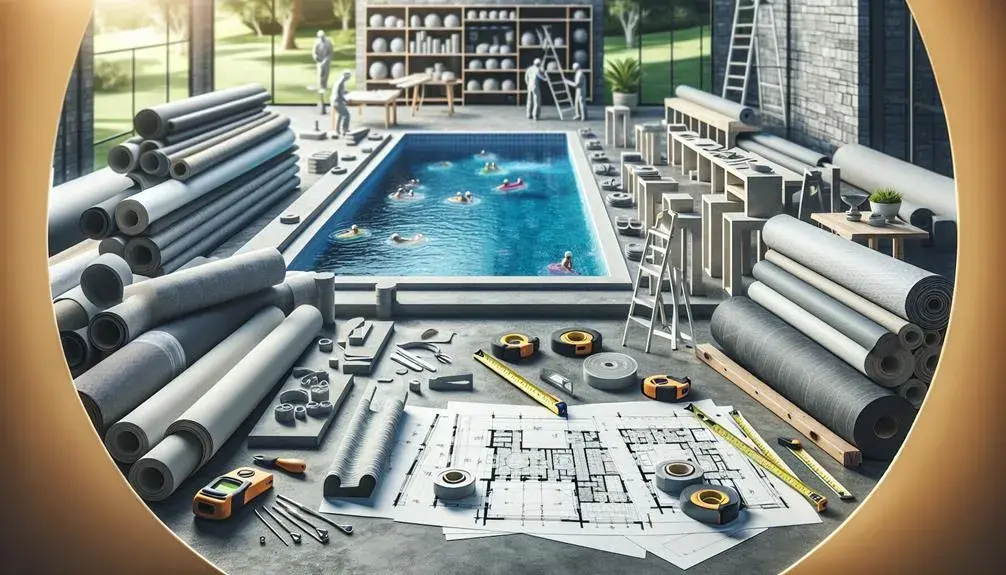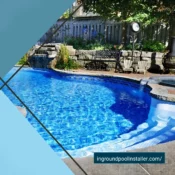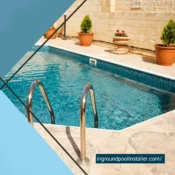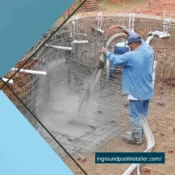Choosing the Right Materials: A Guide for Every Inground Pool Installer

Choosing the Right Materials: A Guide for Every Inground Pool Installer
In the realm of inground pool installation, the selection of appropriate materials stands as a paramount consideration that significantly impacts the longevity, aesthetics, and functionality of the final product.
The range of available materials for inground pool installers is vast and varied, each with their unique set of attributes and potential drawbacks. From the traditional concrete and plaster to the more modern fiberglass and vinyl, the choice largely depends on several factors including budget, maintenance, client preference, and the geographical location.
This discourse aims to provide a comprehensive guide to understanding these materials, their pros and cons, and how to make the most informed decision that meets all requirements while ensuring optimal performance and customer satisfaction.
The following sections will certainly pique your interest as we explore this crucial aspect of pool installation further.
Understanding Different Pool Materials
When it comes to inground pool installation, selecting the appropriate material is paramount, as it directly influences the durability, maintenance, aesthetics, and cost of your pool.
The most common materials include concrete, vinyl, and fiberglass, each with its unique attributes. Concrete, known for its durability and flexibility in design, is perfect for custom-shaped pools, yet requires regular maintenance to prevent algae growth.
Vinyl, on the other hand, offers a smooth surface and is cost-effective, but it's susceptible to punctures.
Lastly, fiberglass is praised for its low maintenance and algae resistance, but it's limited in design options.
Understanding these materials is crucial for inground pool installers in making an informed choice, ensuring a pool that caters to your specific needs and preferences.
Making the Right Material Choice
Navigating the plethora of pool materials can be daunting, thus it's essential to weigh the pros and cons of each material in the context of your specific requirements, budget, and desired aesthetic.
To assist in making the correct choice:
- Consider the longevity and maintenance of the material:
- Concrete, while durable, requires more upkeep.
- Vinyl, less durable than concrete, is easier to maintain.
- Reflect on the aesthetic value and budget:
- Fiberglass offers a sleek, modern look but can be costly.
- Concrete allows for customizable shapes but may strain your budget.
Understanding your unique needs will guide you towards the best material choice. By doing so, you can ensure a successful installation and a pool that will provide years of enjoyment.
All Categories
- Concrete
- Concrete
- Concrete pools
- Construction
- Custom Features and Add-ons
- Design
- Design
- Design
- Design & Construction
- Design and Planning
- Features & Customization
- Infinity edge
- inground pool
- inground pool builder
- inground pool installer
- Installation
- Installation Process
- Legal & Administrative
- Materials
- planning and design
- Pool Aesthetics and Customization
- Pool Design
- Pool Equipment
- Pool Features
- Pool Features
- Pool Installation Process
- Pool Materials
- Pool Materials
- Pool Types
- Project Planning
- Renovation
- Resurfacing
- top sights
- Types of Inground Pools
- Types of Inground Pools
- Types of Inground Pools
- Types of Inground Pools
- Water Treatment



